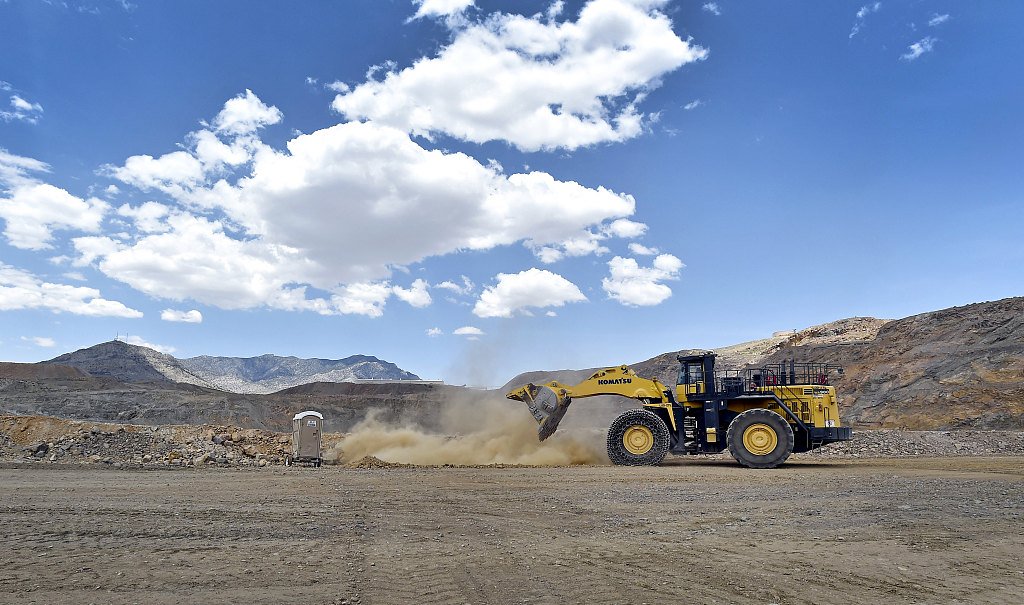China has been strengthening its grip on its supply chain of rare earth materials. According to reports, the country has announced the merger of three rare earth companies in a bid to consolidate and dominate the sector.
China, the world’s top producer of rare earth material, merged 3 state-owned rare earth mining companies — China Minmetals Corp., Aluminum Corp. of China, and Ganzhou Rare Earth Group Corp. — to form a new entity China Rare Earths Group on December 23.
Rare earth is a combination of 17 minerals used as a vital ingredient in the production of consumer electronics as well as military equipment. According to reports, the China Rare Earths Group will control 70% of the country’s production of these key metals.

China Rare Earth Group is going to be one out of the roughly 100 “central companies” which are directly supervised by the state-owned Assets Supervision and Administration Commission (SASAC).
The SASAC will control 31% of the new company while China Minmetals Corp., Aluminum Corp. of China, and Ganzhou Rare Earth Group Co. are going to hold 20% interest each. The registered capital of the China Rare Earth Group is known to be 100 million yuan ($15.6 million), Reuters reported.
The new combined company will be chaired by Ao Hong, deputy secretary of the Communist Party Company at Aluminum Corp. The daily operations of the company will be overseen by Liu Leiyun, a director at China Minmetals and an alumnus of Tsinghua University, which is also the alma mater of Chinese President Xi Jinping.
According to reports published by Chinese media, the China Rare Earth Group has been described as an “aircraft carrier” due to its extensive range.
According to information released by Beijing, the company is going to hold 70% of China’s production quota for medium and heavy rare earths, and around 40% of rare earth as a whole which also includes light elements.
Around 60% of the rare earth output worldwide has been accounted for by China, according to data shown by the US Geological Survey. Xi Jinping described the minerals as “an important strategic source” in 2019.
The Chinese government also released a ‘proposal for tighter oversight in this industry, which is still under the consideration of China’s legislature, the National People’s Congress, Asia Nikkei reported.
This merger is also likely to strengthen the industry which has suffered from high price swings which have impacted costs for its end users. It will also reduce the pressure of competition in the industry as it is going to bring down the number of Chinese rare earth miners from six to four.
The same ideology has been implemented by the Chinese government in other industries as well such as rail transport and shipping lines. It aims to prevent rival groups from pulling down their parallels while pitching for big overseas contracts, Financial Times reported.
“We can’t let market forces determine how much rare earth should cost given their strategic importance”, said one person close to Ganzhou Rare Earth who asked not to be identified. “We need to keep prices stable so end users can control costs and move up the value chain”, they said.
Competition With The US
Beijing’s move comes shortly after US President Joe Biden’s administration hyped the “risks of China’s threat to the US supply chain”. According to reports, the US Defense Department also signed a technological investment agreement with an Australian firm.
Under this agreement, the Australian company is going to build a light rare earth processing facility in Texas.
Wu Chenhui, an independent industry analyst, said that “the new entity will not change its primary target of China ensuring the global rare-earth supplies and the country will not weaponize it as a diplomatic counterattack unless it is forced to.
But these critical resources do give China greater clout and bargaining power at the negotiation table, serving as a stern warning to any Western bullying attempts.”
China’s rare earth capacity has been highlighted during the 18-month-long trade war between the two largest economies of the world.
Xi Jinping visited Ganzhou, which is a major production base of rare earth minerals and magnets, in 2019. During his visit, he highlighted China’s expertise in the rare earth industry, from the extraction of the minerals, refining, and production, to later use them for the manufacture of hi-tech equipment, Global Times reported.
According to industry insiders, the present restructure may result in a “drive-up” of rare earth prices and may also increase domestic profitability. This is going to further help in solving persisting industry issues such as environmental pollution.
It is also expected to increase the efficiency in the use of valuable resources as it is going to reduce price competition between rival groups in the industry.
Prices of rare earth spiked during the beginning of 2020, at a time when the Covid-19 pandemic broke out, leading to a global supply shortage and also a huge reduction in productivity.
According to a report published by Wall Street Journal, prices of these rare earths have not yet returned to the levels which they reached during mid-2011.
- Written by Kashish Tandon/EurAsian Times Desk
- Contact the author at: kashishtandon21@gmail.com
- Follow EurAsian Times on Google News